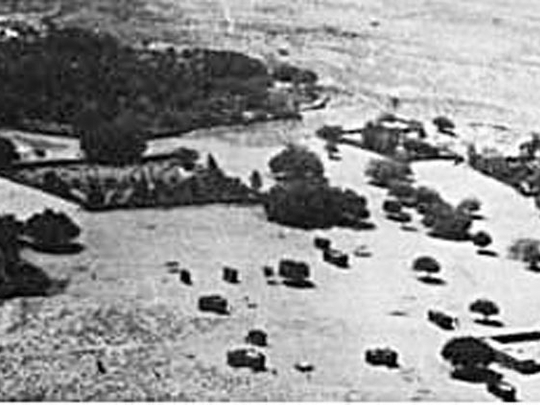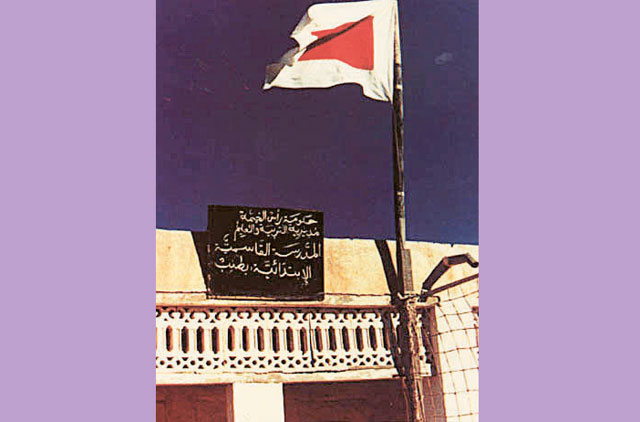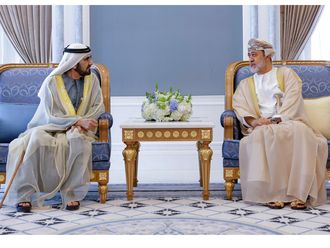
Abu Dhabi: Emirati rights to Iran-occupied Abu Mousa near the mouth of the strategic Strait of Hormuz, along with Greater and Lesser Tunbs, will be retained, no matter how long this takes or what Tehran does, Emirati analysts said yesterday.
They argue that Iranian President Ahmadinejad's visit to Abu Mousa is a blessing in disguise.
Dr Hamad Bin Sarai, professor of history at the UAE University, said the Iranian President Ahmadinejad's "provocative" visit to Abu Mousa can never change the fact that it is a UAE island.
"The three islands of Abu Mousa, Greater and Lesser Tunbs are Emirati … this is a fact that cannot be challenged. I challenge Tehran to accept international arbitration. Pursuing a policy of fait accompli in the three islands cannot work, because sooner or later our lands will be retained, no matter how long this takes or what are Tehran's acts," Dr Sarai said.
Calling the visit, the first by an iranian head of state to the occupied islands in more than 40 years, "shameful", Dr Abdul Rahim Al Shaheen, professor of political science at the UAE University, said: "By making this stark violation of the UAE sovereignty over its lands, Iran has offered the UAE a golden opportunity that should be seized."
Security Council move
Dr Al Shaheen added that the issue should be taken to the UN Security Council after consultation with the five permanent members, the GCC and Arab League members.
"An emergency meeting of the Gulf Cooperation Council should be held to discuss measures that could be taken against the Islamic Republic… Should the policy of fait accompli be continued by Iran, further actions including lowering the level of diplomatic representation with Tehran and reducing or severing economic ties with Iran," Dr Al Shaheen said.
Iran occupied the three islands on the eve of the UAE's independence in December 1971 and the issue has been a point of contention between the two countries ever since.
UAE leaders, including Shaikh Zayed, the nation's founder, have repeatedly urged successive Iranian governments to end the dispute through direct negotiations or international arbitration. These calls, however, have been consistently turned down by Iranian officials.
Foreign Minister Shaikh Abdullah Bin Zayed Al Nahyan, condemned the visit as a "flagrant violation of the UAE sovereignty over its territories" and a "setback" to all efforts and attempts the UAE is making to find a peaceful settlement to Iran's occupation of the three UAE islands.
"This visit will not change the legal status of these islands which are part and parcel of UAE soil," Shaikh Abdullah said.
The UAE also summoned its ambassador to Iran for consultation and the Federal National Council condemned Tehran's violation of the UAE's sovereignty over its lands.
Dr Abdul Khaleq Abdullah, professor of political science at the UAE University, said certainly the visit, which sends a message that doors are closed before any attempt to negotiate any possible peaceful solution to the dispute over the UAE islands, will increase tension regionally and internationally. "The issue should be taken right away to the Security Council and get everybody including Russia and China on board, because it destabilises international peace and security," Dr Abdullah said. "Iran should not get away with violating the UAE's sovereignty over its territories."
Dr Ali Abdullah Faris, Emirati historian and director of the Ras Al Khaimah Centre for Studies and Documentation, agreed that a "firm" stand should be taken against Iran's attempts to change the legal status of the Islands.
"Iran's dismissive and fait accompli policies should not be tolerated any longer. The long years [of dispute] may have encouraged Tehran to go on and on with these unacceptable acts," said Dr Faris.
Dr Ahmad Jalal Al Tadmori, an Emirati historian, said the UAE's rights to the three islands can never be squandered as long as the quest for it by Emiratis, supported by the international community, has not ceased. "Legal rights that have been wholly or partly usurped because of the hegemonic attitude of Iran, do not disappear with the mere passage of time. The UAE owns all documents that support its rights and lodged these documents with the International Court of justice, the United Nations and the Arab league," Dr Al Tadmori said.
















